This year’s theme of “Seeking Common Ground in Turbulent Times” framed the content of our conference, as we sought not only to pinpoint key issues facing Chinese Americans today but also to uncover timely solutions and strategies to directly address these issues.
We kicked off this event on Friday with welcome remarks from our President, Zheng Huang.
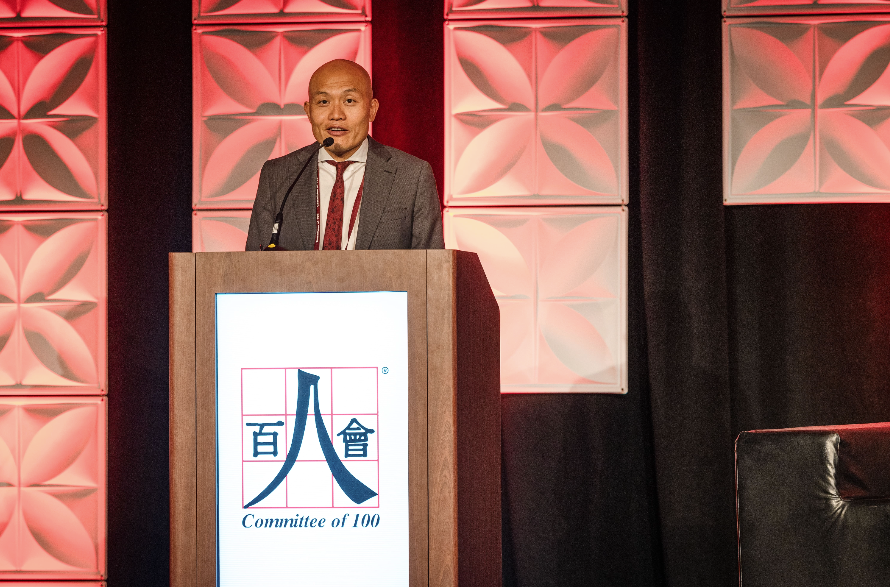 Committee of 100 President Zheng Huang
Committee of 100 President Zheng Huang
This welcome speech was followed by a keynote from California Assemblymember Evan Low, Chair of the California Asian American & Pacific Islander Legislative Caucus. He began by discussing the devastating arson fire in San Jose that burned down the Chinatown on Market Street. He then proposed the idea that politics and state budgets reflect our values, and thus, we must promote the needs of our communities, utilizing politics in order to make our society better. Assemblymember Low additionally discussed his bill to make Lunar New Year a holiday in California, a step that many states have sought to replicate.
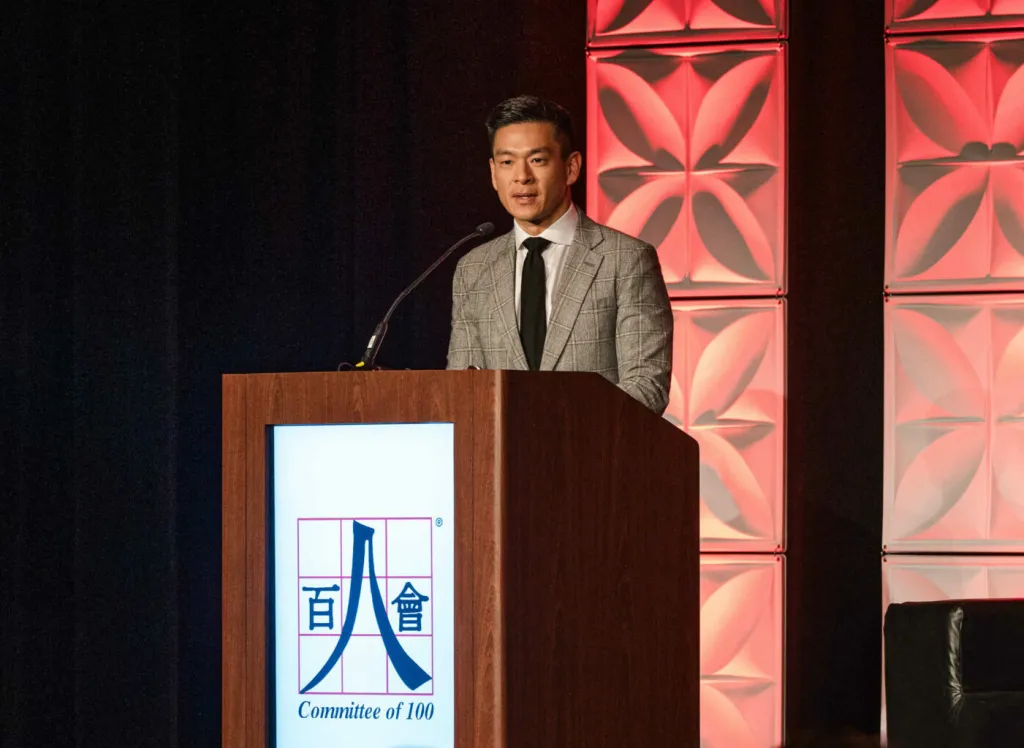 California Assemblymember Evan Low
California Assemblymember Evan Low
Marguerite Gong Hancock, Vice President of Innovation & Programming and Director of the Exponential Center at the Computer History Museum, then spoke on the subject of Chinese Americans Building Silicon Valley, giving a rich presentation on how Chinese Americans have played a significant role in the development of Silicon Valley, from HP to Yahoo! to Zoom.
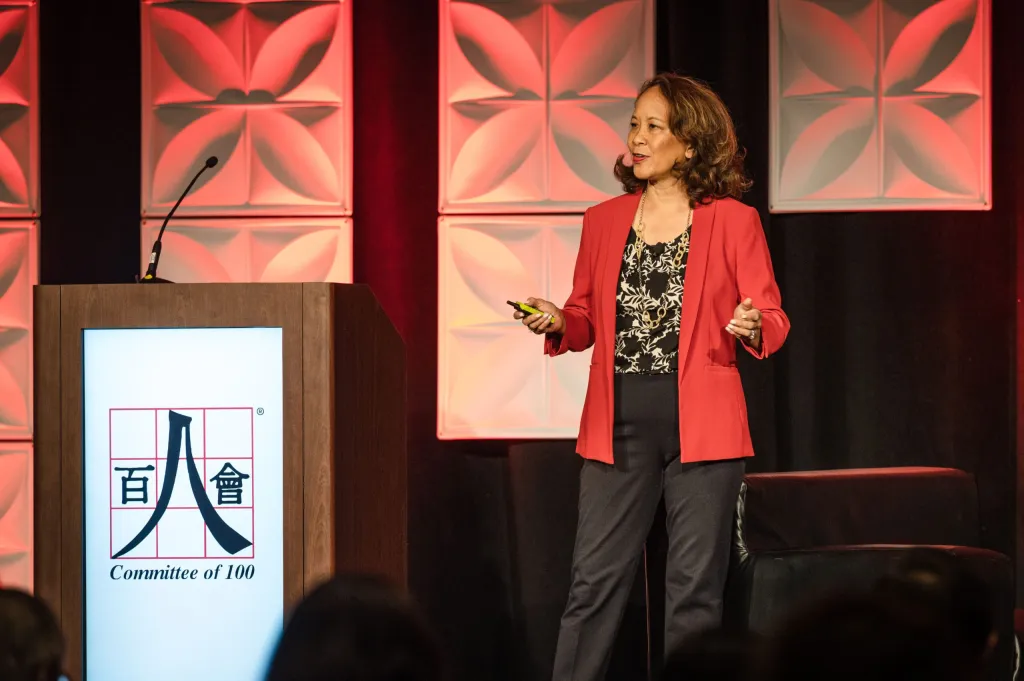 Marguerite Gong Hancock
Marguerite Gong Hancock
This was followed by a morning session called, “Turbulent Times for Chinese Americans: Setting the Context,” where Dr. Jeremy Wu, Founder of APA Justice, presented the current circumstances of Chinese Americans living in the U.S., laying the groundwork for topics covered throughout the conference.
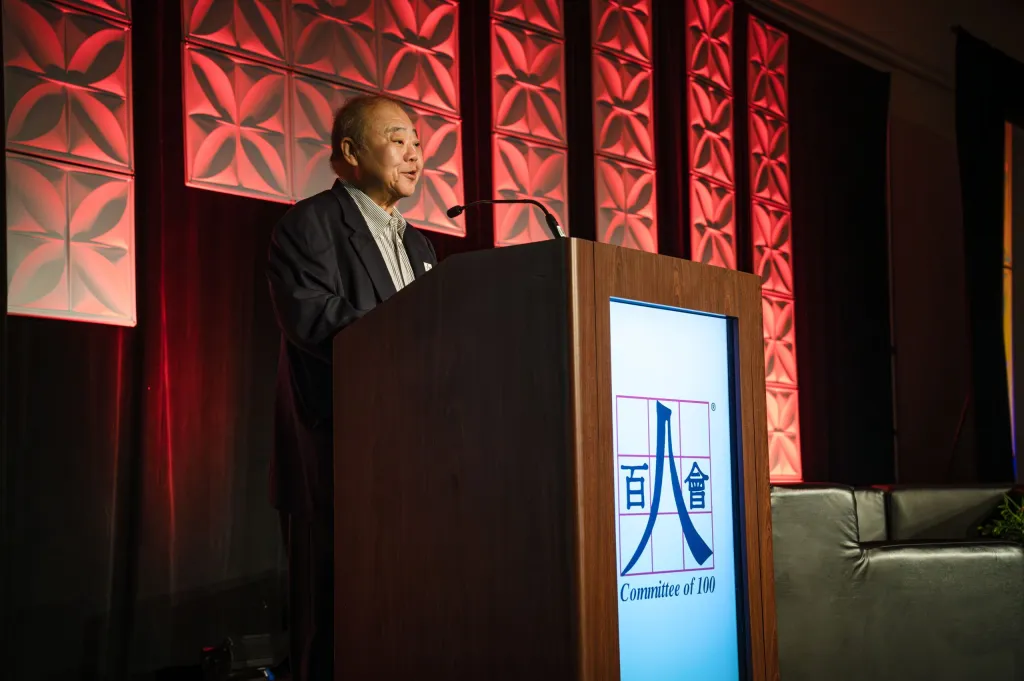 Dr. Jeremy Wu
Dr. Jeremy Wu
Our first panel was “Raising Our Voices: The Model Minority Myth and Anti-Asian Hate,” moderated by Dr. Lanhee Chen, David and Diane Steffy Fellow in American Public Policy Studies at the Hoover Institution. The panel consisted of remarks by Stewart Kwoh, Christine Chen, and Kendall Kosai. Panelists articulated the domestic challenges faced by Chinese Americans and ways to uphold their civil rights in these times of turbulence.
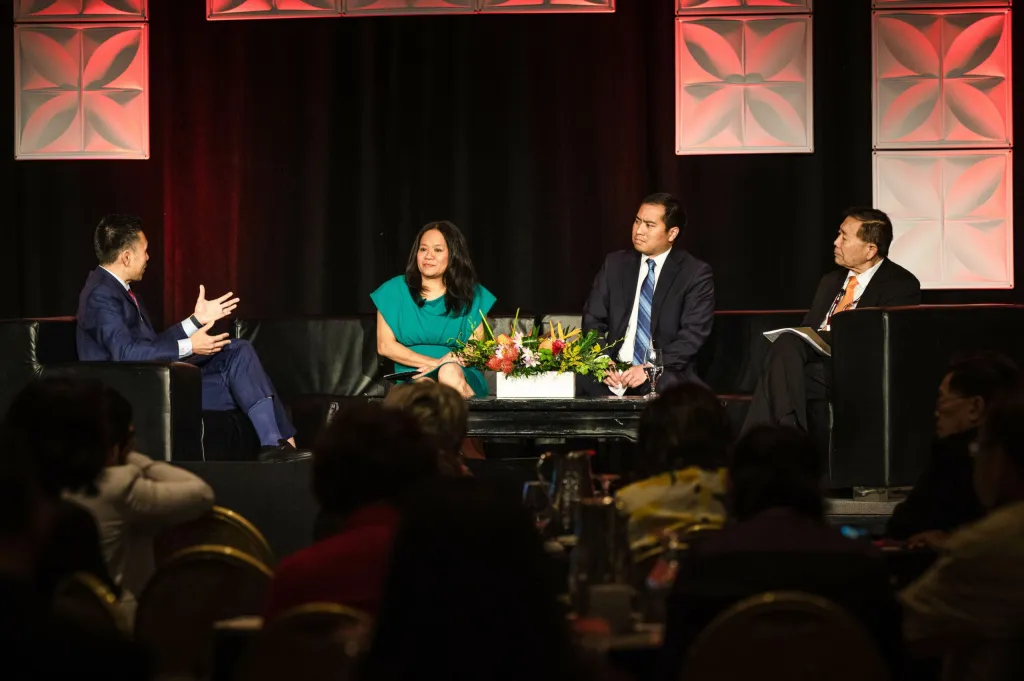 (left to right) Dr. Lanhee Chen, Christine Chen, Kendall Kosai, Stewart Kwoh
(left to right) Dr. Lanhee Chen, Christine Chen, Kendall Kosai, Stewart Kwoh
The second panel highlighted Committee of 100’s Joint Survey with Columbia University: The State of Chinese Americans Survey. Titled “Disaggregated Data and the Chinese American: Joint Survey Findings with Columbia University,” it began with a presentation led by Dr. Qin Gao, highlighting the survey’s many findings and implications. The panel discussion that followed was moderated by Dr. Gordon Chang, and speakers included Dr. Qin Gao, Ditas Katague, and Brenda Choy.
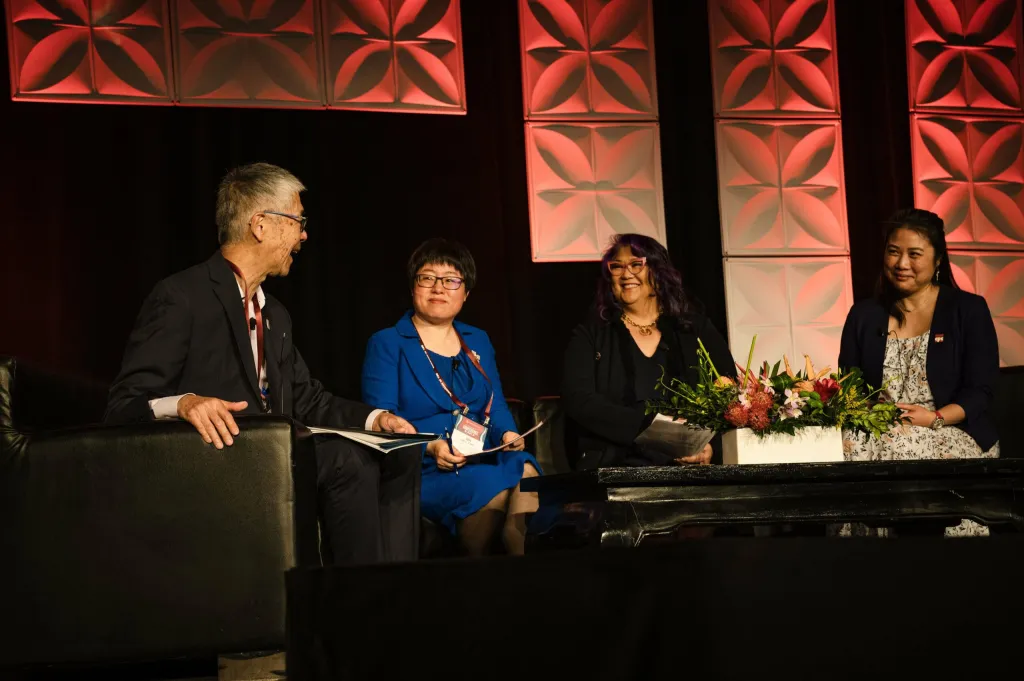 (left to right) Dr. Gordon Chang, Dr. Qin Gao, Ditas Katague, Brenda Choy
(left to right) Dr. Gordon Chang, Dr. Qin Gao, Ditas Katague, Brenda Choy
After the second panel and following lunch, Congressman Ted W. Lieu delivered the conference keynote address. His speech centered on advancements within artificial intelligence and their substantial influence on society—particularly underscoring the implications of ChatGPT. In addition, Congressman Lieu discussed the importance of protecting both civil rights and national security in any regulatory regime. Kenneth Fong introduced the Congressman.
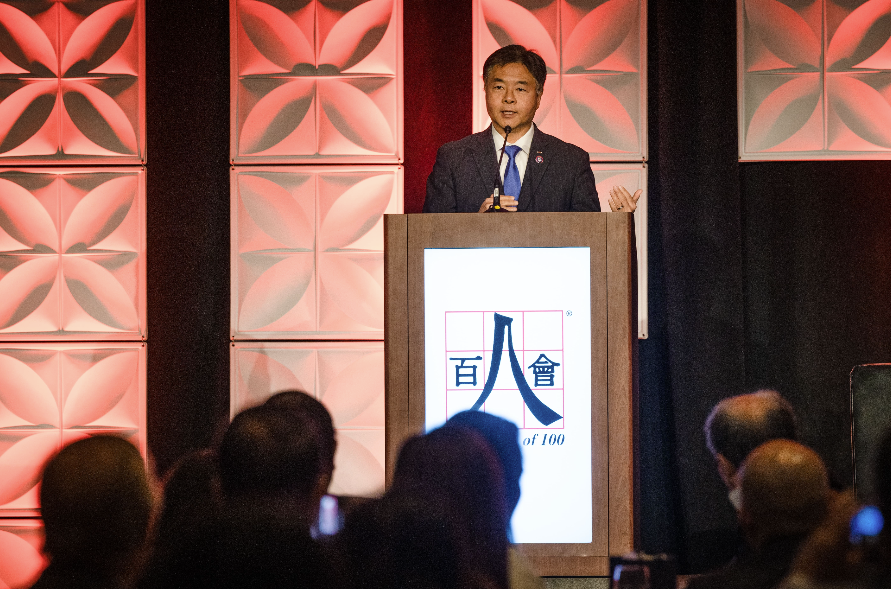 Congressman Ted W. Lieu
Congressman Ted W. Lieu
We then were joined by Handel Lee and Dr. Jay Xu for a discussion of “Our Place on the Mall: Working Toward a National Museum of Asian Pacific American History & Culture.” This fireside chat focused on the importance of having a museum on the National Mall that represents Asian Pacific Americans, the progress thus far advanced by the Commission to Study the Potential Creation of a National Museum of Asian Pacific American History and Culture and by the Friends of the National Asian Pacific American Museum, as well as the roads ahead.
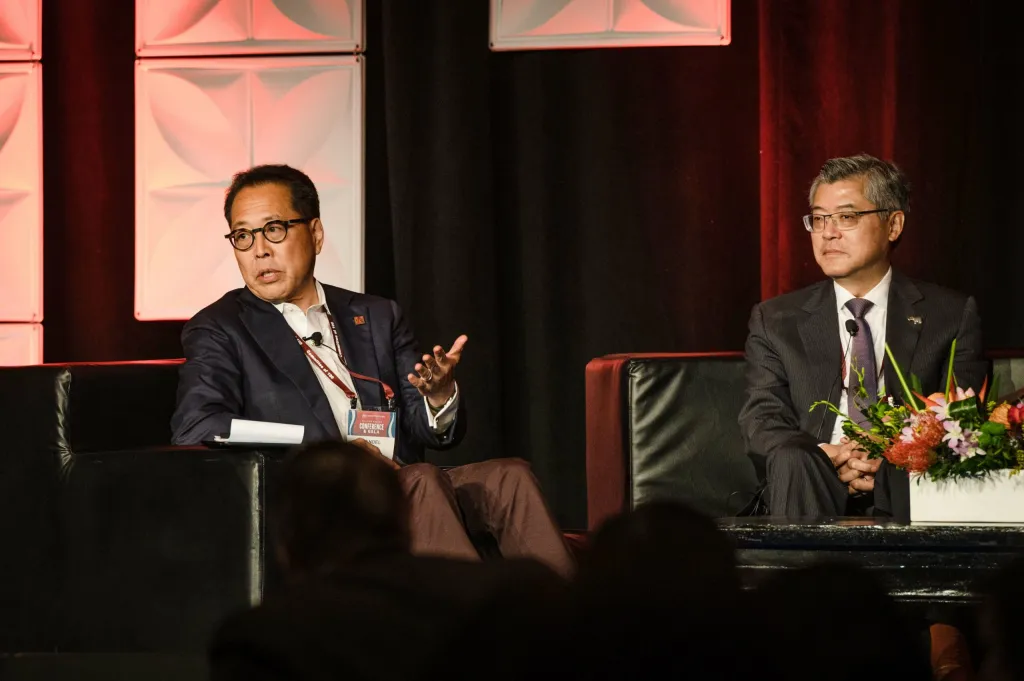 Handel Lee, left, and Dr. Jay Xu
Handel Lee, left, and Dr. Jay Xu
“U.S.-China Policy: Impact on Trade and Economics” was the third panel slated for the day, and this focused how U.S.-China policy impacts the speakers involved and their fields, as well as their suggestions on addressing key concerns. The panel was led by Committee of 100 member Nelson Dong and featured Margaret Wong, Andy Tang, and Catherine Pan, as speakers. They spoke about how U.S.-China relations impact economics and trade, as well as how these policies impact people on the ground in both countries.
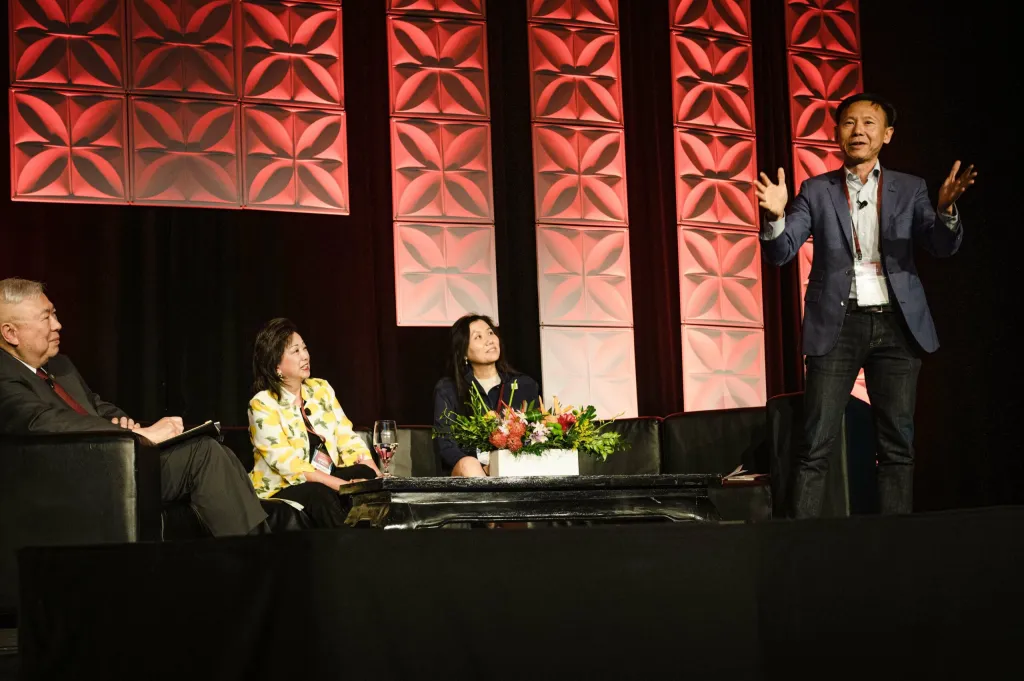 (left to right) Nelson Dong, Margaret Wong, Catherine Pan, Andy Tang
(left to right) Nelson Dong, Margaret Wong, Catherine Pan, Andy Tang
After the third panel, our fourth was moderated by Committee of 100 member X. Rick Niu and focused on the idea that “‘Coopetition’ Is Real Between the U.S. and China.” Panelists included Ernie Thrasher, Murdo Gordon, and Jim Byron. These speakers examined how the two countries have been working on issues, such as climate change, energy revolution, food security, and public health, while also considering what more could be done to address such issues.
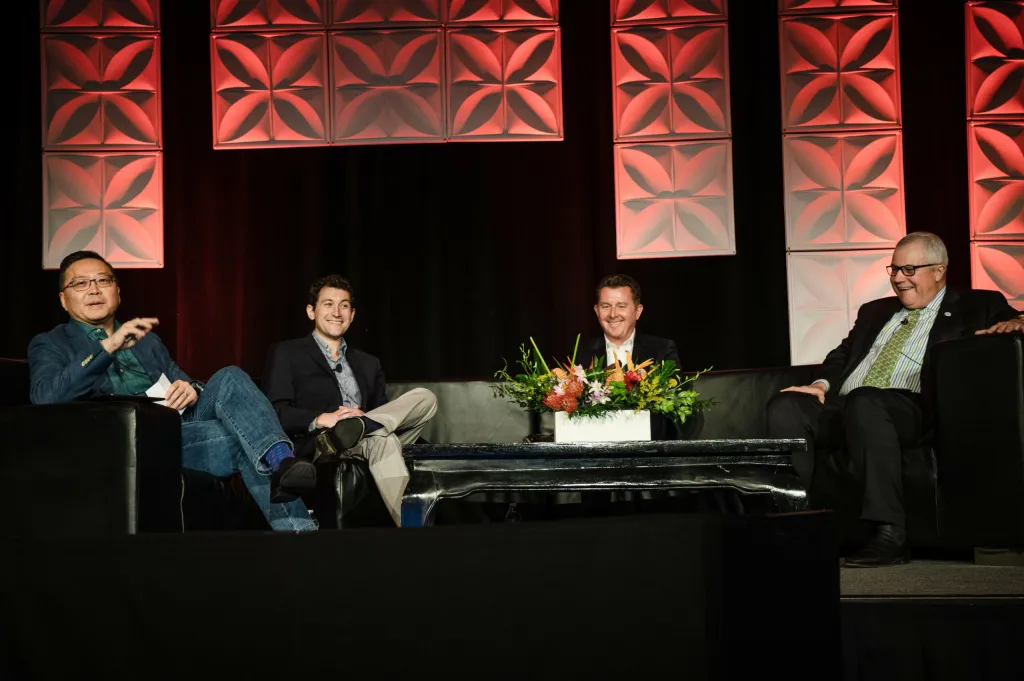 (left to right) X. Rick Niu, Jim Byron, Murdo Gordon, Ernie Thrasher
(left to right) X. Rick Niu, Jim Byron, Murdo Gordon, Ernie Thrasher
Finally, our last session of the day was “Working Towards a Better Future: A Fresh Look at Old Problems by Young Leaders,” which was a forward-looking and inspiring session led by Cyndie Chang. This discussion comprised a fresh look at old issues from the perspective of Committee of 100’s Next Generation Leaders. NGL presenters addressed what new and innovative solutions exist to achieve the goal of a brighter future for Chinese Americans and how these solutions can be executed and implemented effectively to create positive change.
Cyndie Chang
Next Generation Leaders Class of 2022